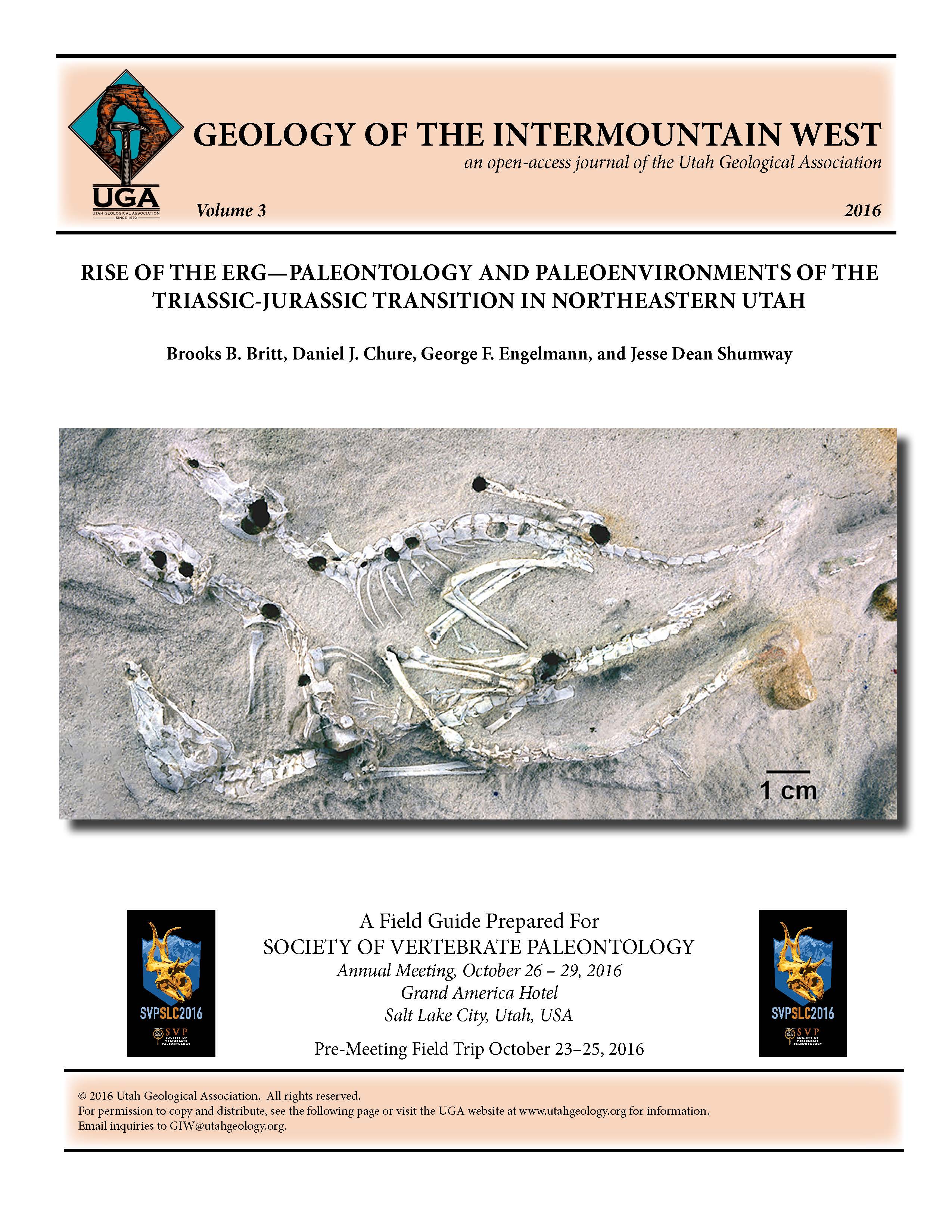Rise of the Erg—Paleontology and paleoenvironments of the Triassic-Jurassic transition in Northeastern Utah
Abstract
This field trip focuses on the Late Triassic-Early Jurassic transition in northeastern Utah. This transition records one of the most striking terrestrial environmental transformations in the history of North America, wherein the fluvio-lacustrine Chinle Formation is transgressed by the vast erg system of the Nugget (Wingate+Navajo)/Navajo/Aztec Sandstones. Exposures in northeastern Utah are ideal for studying this transition as they are closely spaced and accessible. The uppermost Chinle Formation beds are lacustrine/fluvial fine-grained sediments which are overlain by increasingly drier, sandy, transitional beds. The non-eolian basal beds of the Nugget Sandstone preserve a Late Triassic ichnofauna, with some sites including Brachychirotherium tracks. Large-scale dune deposits comprise most of the Nugget Sandstone and contain vertebrate (Brasilichnium) tracks and a diverse invertebrate ichnofauna. Interdunal, carbonate, spring mounds, as much as 3 m tall, fed carbonate freshwater lake deposits containing gastropod body fossils and invertebrate ichnofossils. Another lacustrine deposit, located at the Saints & Sinners Quarry, is on the shoreline of a non-carbonate interdunal lake/oasis. Over 11,500 bones have been collected from the site and represent two theropod dinosaur taxa, sphenodonts, sphenosuchians, a pterosaur, and drepanosaurs (with many complete, three-dimensional, articulated skeletons). In addition to bones, dinosaur trackways are also preserved in shoreline and other interdunal beds. The fauna shows that this interdunal area of the Nugget Sandstone was the site of intense biological activity. The drepanosaurs are chronologically significant in that they are restricted globally to the Late Triassic, indicating that at least the lower one-fourth to one-third of the formation is Late Triassic in age.

Copyright (c) 2016 Utah Geological Association

This work is licensed under a Creative Commons Attribution 4.0 International License.




